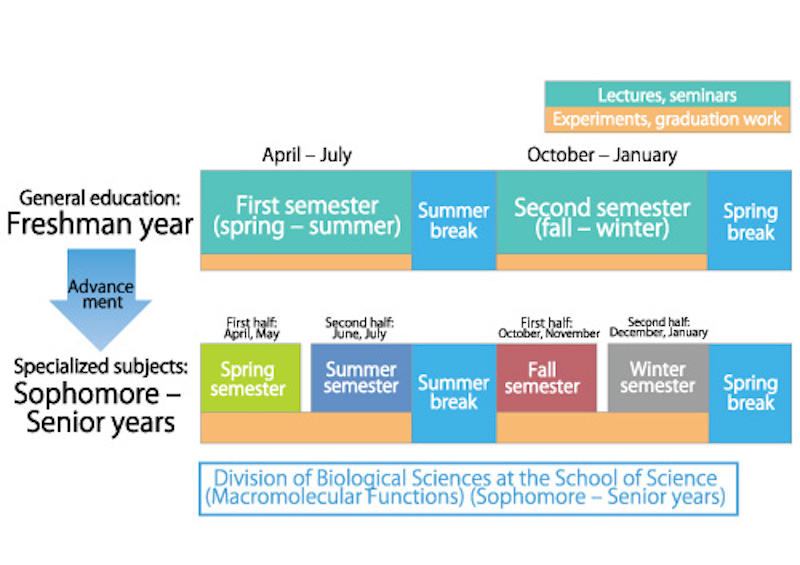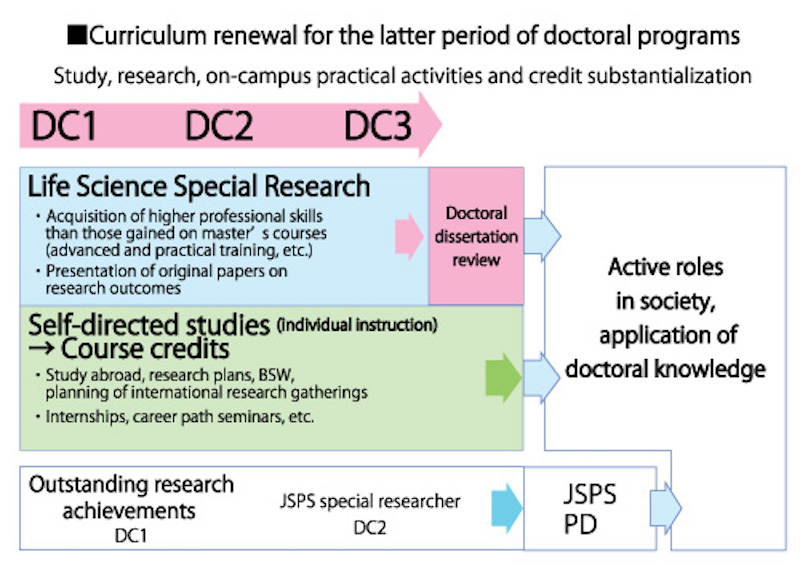Gender equality
The Faculty of Advanced Life Science and the Graduate School of Life Science actively employ female and non-Japanese teachers. With the aim of development as a leading research and education center, programs are implemented to attract outstanding international students based on strong research ties with top-level universities in Asia. Students also attend lectures, partake in thesis review sessions and engage in other academic activities in English to develop their capabilities for working on the international stage. At the Faculty of Advanced Life Science and the Graduate School of Life Science, female and non-Japanese teachers account for 10% of the total (the highest percentage of all faculties and schools at the university), allowing the provision of multidisciplinary education and effective support to international students. It is believed that female students are encouraged to set higher career goals through close interaction with ambitious female researchers.
Human resource education and development
Undergraduate education and the use of ICT
Hokkaido University’s first quarterly system was introduced for the undergraduate curriculum (specialized subjects), and various efforts to improve the learning support environment have been made. The university’s use of interactive classroom technology (clickers) was covered in an article on the front page of the Nikkei newspaper on November 8, 2013. A pentagram learning support system incorporating ICT is used for daily class preparation, review and paper submission. With this system, interaction between students and teachers is realized and teaching assistant (TA) training is provided via e-learning, thereby improving the use of the TA system.

Curriculum renewal for the latter period of doctoral programs
Improvement of international competitiveness in the field of life science is a major national strategy for Japan, along with the development of advanced individuals capable of playing leading roles in international society. The Faculty of Advanced Life Science provides life science graduate students (from the Transdisciplinary Life Science Course) with support for self-directed studies that will promote career development (e.g., study abroad, formulation of research plans, brainstorming workshops, planning and implementation of international research gatherings, and internships) based on a project supported by the Ministry of Education, Culture, Sports Science and Technology (the Program for Enhancing Systematic Education in Graduate Schools: 2008 – 2010 Development of Transdisciplinary Life Science Professionals). Based on results achieved from the project, discussions on curriculum renewal for the latter period of doctoral programs were begun in 2011. New curricula incorporating self-directed studies as well as special research programs (in which students build professional knowledge and organize high-level research outcomes toward the acquisition of doctoral degrees) were started for new students in academic 2013 as elective subjects for credits. The faculty aims to develop a human resource-fostering ecosystem with elements such as problem-based learning (PBL) to foster young researchers in the field of transdisciplinary basic science. Such individuals will be capable of rising to various domestic and international challenges.
